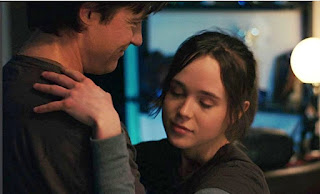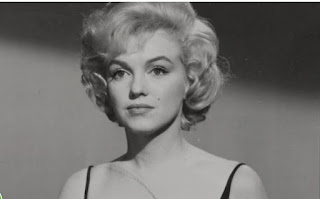
Billy Wilder: Dancing on the Edge (2022) by film historian, critic, academic and biographer Joseph McBride, is a comprehensive, invaluable critical study of one of the most admired and enduring filmmaker-satirists of the post-World War II era. Wilder, born in what is now Poland in 1906, is best known for his Hollywood-made films, Double Indemnity (1944), Sunset Blvd. (1950), Some Like It Hot (1959), The Apartment (1960), Irma La Douce (1963) and Kiss Me, Stupid (1964). It would be difficult to make sense of popular culture in America over the course of several decades without taking Wilder’s efforts into account. Though an influential fixture in Hollywood, Wilder always saw himself as an outsider. Wilder’s films are full, McBride points out, of “hotel and train settings as his characters race from place to place, attempting to find their bearings.” His “bustling energy and impatience were a symptom of enduring anxiety over his rootless condition, his unconscious need to keep moving in order to avoid being trapped.” After an unstable upbringing, “and far more deeply after he fled Hitler in 1933 and emigrated to the United States, Wilder experienced the exile’s essential feeling of never quite belonging or knowing a firm identity, always having to be ready to move again, no matter how safe you might feel at the moment.”

In contrast to the widespread view of Wilder as a hardened cynic, McBride reveals him to be a disappointed romantic. Wilder's experiences as an exile led him to mask his sensitivity beneath a veneer of wisecracking that made him a celebrated caustic wit. Amid the satirical barbs and exposure of social hypocrisies, Wilder’s films are marked by intense compassion and a profound understanding of the human condition. McBride writes further on that “Wilder’s habitual feeling of being ausländisch (foreign or alien) deeply influenced his work as a filmmaker. “Wilder’s characters,” the author comments, “cross boundaries of every kind, physical, social, and psychological. They challenge and violate social mores, operate on the edges of the law, transgress what is considered proper behavior.”
In
The Lost Weekend (1945) Billy Wilder and Charles Brackett’s script conveys perfectly the feeling of irreversibility, the spiral of self-destruction that leads Don Birnam (Ray Milland) to continue his clinical alcoholism. The film’s relentless depiction of Birnam’s moral decline explains why it has held up particularly well. Wilder admitted to having developed the film “as a way to explain Raymond Chandler to himself.” Paramount convinced Wilder that a matinée idol would be necessary for the leading role, so the audience would not be revolted by the sordid experience. Robert Montgomery, Cary Grant and Alan Ladd refused to tackle such a risky role. "Birnam is both tragic clown and audience staring back at the performer in silent contempt and ridicule."

McBride also reviews Wilder's acerbic noir film Ace in the Hole (1951), which he calls “boldly uncompromising” and “Wilder’s bleakest view of human venality . . . so grim in its indictment of the public for its heartless enjoyment of morbid spectacle that American audiences rejected the film for holding a mirror up to them”; the unfairly maligned sex comedy Kiss Me, Stupid (1964), which McBride prefers to call “Rabelaisian”; and The Private Life of Sherlock Holmes (1970), butchered by its own studio in a manner that broke Wilder’s spirit. Despite their tendency “toward satire and ridicule,” he writes, Wilder’s films “do not simply deride or discredit moral principles; instead they explore moral issues and deplore or mock the way principles are often violated. Anyone who comes away from a Wilder film thinking the director believes that life is meaningless is projecting on it the kind of film the spectator fears. As cold-blooded as Wilder’s characters and situations can be, as skeptical and pessimistic as he is, there is always emotion or humor in his viewpoint.” Source: www.wsws.org

If you wanted to write a screenplay for a blockbuster film, Aristotle is the last person you might ask for advice. He lived more than 2,000 years ago, spent his days lecturing on ethics and never saw a movie in his life. But some of the best contemporary writers of stage and screen think that this ancient Greek philosopher knew exactly how to tell a gripping story for any age. ‘The rulebook is the Poetics of Aristotle,’ Aaron Sorkin said. ‘All the rules are there.’ Art is not a simple mirror of reality – far from it – for we shape the images or words to make some particular point. In one of the most famous statements from the Poetics, what you want to achieve most as a writer of drama is to evoke pity in your viewers – that is, empathetic pity followed by jolting realisation. When you do this right, your audience walks out of the theatre different from when they entered, having experienced an emotional cleansing of sorts – what the Greeks called Catharsis.

This is the true power of storytelling. The first of his key concepts of storytelling is quite simple but too frequently ignored in modern scripts: "A story that is complete must have a beginning, middle, and ending." Now consider how many movies you’ve seen that lack a clear and logical beginning to introduce the action and characters. Audiences will allow you some leeway if you want to reveal a backstory in flashbacks, but if you don’t cover the basics at the start of your story, the viewers could become confused. There are also plenty of films that start with a strong premise but lose their steam somewhere in the middle – a fundamental mistake according to Aristotle. But the most common error in films that the Greek philosopher would condemn is a weak ending, in which the screenwriters don’t know how to bring the story to a proper close. Another key point is how the characters should fare overall in the arc of a dramatic plot. It is important for a character to change from the beginning to the end of a story to achieve the maximum effect on an audience. Aristotle also wrote that you could have a truly good person suffer a terrible ending, but this will leave your audience full of shock and disgust. Similarly, if you have a really evil person triumph at the end of your story, the viewers will throw popcorn at the screen. What remains is the character change that Aristotle says works best. So we are left then with the best tragic characters being someone in-between – that is, neither terribly wicked nor a shining example of virtue. During the story, this character undergoes a downfall not through great wickedness or vice, but because of some mistake or weakness. Source: aeon.co













































